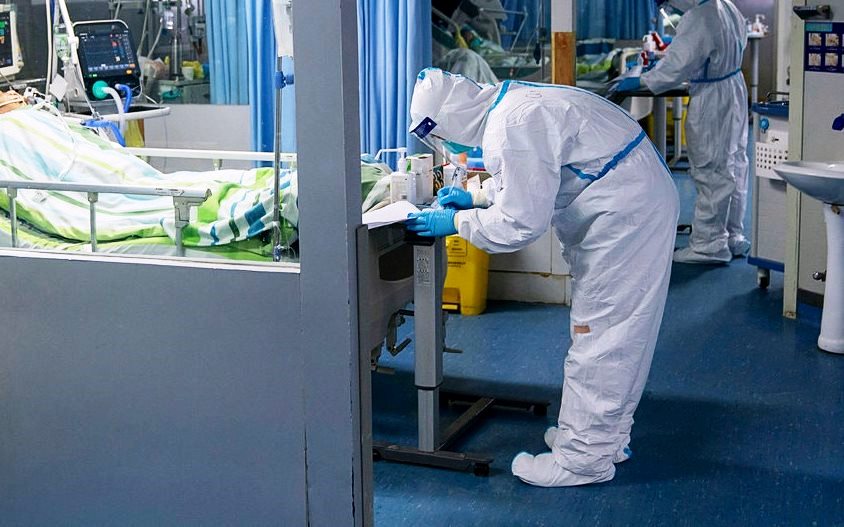
Experts discuss the coronavirus (COVID-19) - Will this pandemic end?
When could we expect the end of COVID-19? When are we going to have a vaccine? According to experts worldwide, it is impossible to define a date. The reality is that there still are many doubts about the coronavirus.
Experts and professors worldwide are discussing the ending of the pandemic. It is very difficult to understand when a valid vaccine could be produced and available to everyone. Then, many are questioning whether coronavirus (COVID-19) could ever disappear if everyone respects the good measures imposed by their Governments.
Coronavirus (COVID-19): it is impossible to put a date on its ending without a vaccine
This is what Dr Simon Clarke, professor of cellular microbiology at the University of Reading tells the tabloids. It is particularly challenging to put an end to COVID-19 without a proper vaccine, while many people can be infected without showing symptoms of coronavirus. They may, then, infect other people and the ones with the weakest health would be in serious danger.
“If anyone tells you a date they are staring into a crystal ball. The reality is that it will be with us forever because it has spread now.”, assures again Dr Clarke.
From the University of Sussex and Nottingham: coronavirus (COVID-19) will not disappear so soon
Dr Jenna Macciochi, a lecturer in immunology at the University of Sussex agrees with Dr Clarke. It is hard to estimate a date. The outcome of the measures against coronavirus will be determined by many factors, that’s why it is so difficult to make forecasts.
On the other hand, Robert Dingwall, professor of social sciences at Nottingham Trent University describes the situation on COVID-19 as being “impossible to give any scientifically-justifiable timetable”.
Novel coronavirus (COVID-19) and the concern about the winter without a vaccine
The fear of many experts is on the arrival of the winter, where many countries will register a high increase in cases of flu. With them, also coronavirus cases would probably rise.
“The difficulty with any modelling or future predictions is this is an entirely new virus, and the scale of this pandemic is unprecedented in living memory”, says Michael Head, senior research fellow in global health at Southampton University, says estimates are made particularly difficult because coronavirus is a novel virus.
Dr Macciocchi reprises that, even if we are careful and follow all the measure, we have no idea how long the situation will last. Then, if we let people go back to normal too quickly, it could backfire.
Is the vaccine an immediate solution to the coronavirus (COVID-19)?
Every expert agrees that the key to fighting the coronavirus (COVID-19) will be the development of a vaccine. That is the way to control symptoms too but they only treat, they don’t get rid of it. Dr Clarke added that, if vaccines are given to enough of the population (around 60%), the country will develop what is known as ‘herd immunity’. The virus will not be able to spread so easily in the future.
Professor Dingwall declared that the coronavirus (COVID-19) will be endemic in human populations (like seasonal flu) until there is a safe and effective vaccine, which can be used on a mass scale.
However, Dr Clarke warns this isn’t as simple as it sounds. The aim of vaccines is to generate an immune response that is protective enough. This means that it must to be able to protect against subsequent infections when those happen. The vaccine must also be safe and long-lasting enough. This is a hard point to work on.
The estimation of Dr Macciochi and Mr Head on the vaccine in the market is between 12 and 18 months.
What about other solutions instead of vaccine to defeat the coronavirus (COVID-19)
The only solution by now is to “watch and wait” if the measures taken by the countries in the world will work in a long-term view. Dr Macciochi declares that things are starting to get better in China, so there is much hope for any country. Plus, studying already infected people who managed to defeat coronavirus (COVID-19) could be very important for the research activities, in order to understand how to improve medical response.
.
READ ALSO
Contagious coronavirus: what to say if you call 112 for suspected COVID-19 infection
UNICEF against COVID-19 and other diseases
Coronavirus (COVID-19): Hungary and the US give support to the Republic of Moldova
COVID-19 in the US: FDA issued an emergency authorization to use Remdesivir to treat coronavirus patients
Cuba sends 200 medics and nurses to South Africa to face COVID-19


